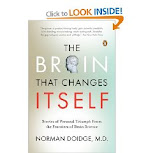Remember I said I'd talk to people who have stuff to talk about? Well after Zoso, here goes another :-)
Dragos Manac is a guy who puts together simple things to satisfy the selfish drives of people online.
This is pretty much the philosophy behind some cool projects like ghelir.ro. Unfortunately I started off my conversation with Dragos on the wrong foot because I also listed zazazoo.ro among his achievements and apparently that is not his, but simply the same platform so, my bad.
I met up with Dragos Manac for two reasons, one that I envy his clear and consequential style of writing and the way in which he makes sense and has a point every time he writes, and two because he seems to understand how people operate online. So I was trying to figure out if he has some “data” about the online consumer and what drives him.
This is a write-up of our conversation [which included Diana]
A user of his own medicine?
The first thing that was striking about Dragos is that, supposedly, he does not like to shop at all. So when he does, does he do it online or offline [him being the man behind at least one cool online buying idea]? He says he does some of his shopping online but he much rather prefers shopping in the real world when he has to. He is not an online addict and thinks that not everyone will turn to online buying.
Getting the basics right
We spent a lot of time talking about how and why people choose to behave the way they do online and what online businesses could do to make the decision easier and faster. Dragos is a firm believer in simplicity and common sense and especially in getting the basics of anything you do right. He says there is little to no point in trying to offer complicated and eye catching interfaces when you are unable to control stocks or deliver when promised. He told me that it is hard to make linear predictions about the growth of online commerce in Romania in the years to come because it was not the online part that was holding up the business but rather the offline: the fact that sometime there’s no way to deliver something because the streets are not practicable.
Common sense
I was hoping Dragos had some magic recipe to what drives people online, or else a huge data basis of his customers and of Romanians online, which he uses to create complicated profiles on which he later bases all his business decisions. Dragos does no profiling of targets in general, and while he has some data on the users of ghelir.ro he was unwilling to share, basically because he thinks it won’t yield any major breakthrough conclusion. He does not dismiss profiling and agrees that Tesco is an interesting case study on how customer information can be analyzed to lead to new business ideas but he believes that it lies mainly in common sense and identifying a basic problem for which to provide a solution. When he created ghelir.ro the problem was simple, people had too many things to choose from and they were never sure if they had chosen the right thing or the right price. So, presto, simple solution: one product – no choice, best price – no worries.
Selfishness
When asked about communication online Dragos makes a disgusted face. He is annoyed by the noise on the net and often feels attacked by the multitude of messages, which mean nothing to him. He thinks that advertisers have failed to grasp one aspect of Internet: it is a democratic space where people like and want to be selfish, where you can do whatever you want and everyone who has a clue tries their best to give you an easy way to do anything. So the way to seduce a selfish consumer coming to find the easiest solution to a problem is not to talk about what a great brand you are. It was cool to see Dragos talk in praise of branded utility without knowing it. He thinks that brands should stop talking about themselves and start providing service for the consumer online.
Choice and simplicity
Interestingly Dragos believes that choice is a source of frustration for people. So he relies on the simple principle of making it easy for consumers. He also thinks that making something with more features only makes it more annoying to the consumer who thinks that he should get something more high tech but immediately feels frustrated because he paid for features he does not use. He gives me the example of a shop that sells 20000 different printers. The consumer, he says, will not have the time or patience to go through all of them so he will get annoyed and end up buying one that he will immediately feel frustrated with because he will feel there must have been a better one. I mentioned the iPod as another example of a product that scores high on the simplicity and choice spots. It solves one need in a simple and intuitive way and makes choice easy. Dragos seems to agree
Other than that, we had some weird pink Russian soup and found out that Dragos has developed a full proof system for hiring proficient maids and that his aunt is a champion ping-pong player.
Thanks Dragos for taking the time and Diana for adding to the conversation.
communication is essential to business making and it involves more than the ability to name your product, write a tag line or a press release. It's an intricate, rational and scalable effort and, let's face it, not anyone can do it.
1/28/2008
Subscribe to:
Post Comments (Atom)














No comments:
Post a Comment